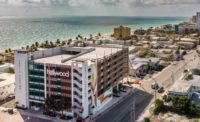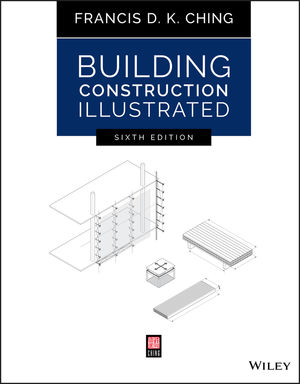As for profit margins, Murphy says: "We've never had a growth spurt where we didn't grow the margin. We will not have any margin fade with this growth."
The 65-year-old Murphy admits he's been approached by parties interested in acquiring his profitable, family-owned firm—and quickly denies interest.
"I'm not interested in selling," he says, adding, "We're not trying to build volume to sell the company."
Coastal's current lineup of projects is a bold one. There's the Mansions at Acqualina project in Sunny Isles Beach, which boasts a 47th-floor penthouse unit—which listed at $50 million—that includes a glass pool that overhangs the building. Also under construction is the "six-star" Saxony condominium project, designed by Norman Foster. At the 1930s-era Surf Club in Surfside, Coastal is renovating the existing structure and surrounding it with a 12-story, glass-enclosed Four Seasons Hotel and Residences designed by Richard Meier and Kobi Karp. There's also developer Gil Dezer's $217-million Porsche Design Tower, which features what Murphy says is the world's first robotic car elevator system that auto-parks vehicles within individual condominium units. And there's the $400-million SkyRise project, a 1,000-ft observation tower proposed for a dot of land on Biscayne Bay.
Murphy traces some of Coastal's current success to the downturn of 2008, when the bottom started dropping out of the South Florida construction market. During roughly the first three quarters of 2008, the company landed an estimated $650 million in new contracts. But within a span of roughly 90 days that fall, owners halted roughly $750 million worth of contracts that were still in preconstruction.
Quickly realizing that the coming decline "wasn't going to be a joke," Murphy reopened the just-completed company budget and made a dramatic move, revising the 2009 estimate for new sales to a single digit: $0. "By November, we were cutting this place apart," he says. Some people were let go, and those who remained—except for the lowest-paid workers—saw their salaries cut while their responsibilities grew, including Murphy.
Coastal ended up beating its 2009 budget for new contracts, agreeing to build one $25-million project. The firm could have landed about $300 million worth of work that year, but turned it down, Murphy says. Exhibiting such discipline during lean times can be challenging for contractors and their employees.
The move required extreme confidence, says Ferrucci. "Because you're challenging your people to either believe or leave."
"When they saw what was getting ready to happen, they didn't go into denial," adds Hank M. Harris, president and CEO of industry consultant FMI and an adviser to Coastal for the past 15 years. "They shrunk the company dramatically and did not waste any time."
Keeping that $750-million backlog of stalled projects viable would be another key for Coastal. One way Coastal kept ready to go was by retaining all of its key executives, and even adding five top officers during 2011 and 2012—sufficiently in advance of the upturn.
"We kept radiating confidence to [clients] and let them know when they're ready to go, we'll be ready," says Whiteman. As a result, "When the market started to come back, we were positioned to take on the volume quickly. [So] we're now in a position where we can selectively pick the best projects."
Coastal's current lineup highlights a South Florida trend toward designs that incorporate unusual—or even unique—elements, such as the Porsche Design Tower's robotic car elevator.
"It seems like we're getting the higher-end, more complicated projects right now," says Sean Murphy, executive vice president for construction. "Some of the projects we're getting into are really incredible."
"Everyone wants something unique," adds Thomas C. Murphy, executive vice president for preconstruction. As a result, he adds, "it takes a lot more understanding and effort to put these [projects] together." But clients see Coastal as up to the task.
















